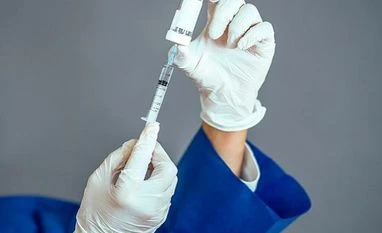Clinical trials that have halted recruiting participants in Russia and Ukraine owing to geopolitical tensions can be re-allocated to India, say industry insiders.
India’s contribution to global clinical trials has been around 4 per cent in the past decade while being the second-most populous country in the world with one-fifth of the global disease burden.
A recent report by PwC and the US-India Chamber of Commerce, titled “Clinical Trial Opportunities in India”, pointed out that a significant number of phase-3 clinical trials sponsored by big pharma with sites in Russia and Ukraine were still not recruiting participants, and India was a potential site for reallocation. This is because the country has a high number of top-disease areas where trial recruitment is halted.
“We had 60-70 studies running in Ukraine at the point of the invasion and so we are now looking as a company about how we move that book of work elsewhere around the world,” Peter Ronco, head of global development, Janssen R&D, J&J, said in the report.
Peyton Howell, chief operating and growth officer, Parexel, said: “We are mitigating the risk (Russia-Ukraine situation). We do think, though, it opens the door in terms of opportunities for India.”
BMS, Merck, J&J, and Roche have officially announced halting patient recruitment in Russia after the Russia-Ukraine war started.
Non-small cell lung cancer, breast cancer, multiple sclerosis, diabetes, and Crohn’s disease are the top five disease areas where patient recruitment has been halted.
Industry experts say there are challenges. The clinical trials market here in 2022 was estimated to be around $2.07 billion, and that can grow up to $3.8 billion by 2030.
“Since 2013, several regulatory updates such as the New Drugs and Clinical Trial (NDCT) Rules, 2019; online platforms; and relaxations of approval processes have catalysed growth in trials. Following the new regulations, the number of sites increased by 40 per cent between 2014 and 2022,” said Sujay Shetty, Global Health Industries Advisory Leader, PwC India. He said a clinical trial ecosystem spawned high-end jobs as well as an R&D ecosystem in the country.
Global clinical trials are run in 25-30 core countries and there is intense competition to have these studies on advance and complex therapies of unmet medical needs to be placed in a country.
The US, China, Japan, Australia, and some advanced economies of the EU are traditional countries where studies are placed due to their regulatory and ethics review maturity.
Sanish Davis, president, Indian Society for Clinical Research (ISCR), told Business Standard over several decades, some smaller countries like South Korea, Poland, and Singapore had made concerted efforts to showcase their stable and predictable regulatory systems and research ecosystem.
“While the implementation of the NDCT Rules, 2019, has brought in predictability on paper, it will take several years before innovation-based pharmaceutical companies are comfortable with the new changes as well as the impact of the new regulations and how those are set into motion at the ground level,” Davis said.
“We are only able to start our sites in five-six months and this significantly diminishes India’s attractiveness as a country to conduct global clinical trials. Some of our government sites do not initiate the review of proposals in the Ethics Committee until the Central Drugs Standard Control Organisation (CDSCO) grants approval for the trial,” Davis said.
This leads to a situation where even if the CDSCO’s approval comes in the 90-working day timeframe (4.5 calendar months), the sites would still not be able to contribute to the study because the trial would be over globally, he said.
A senior R&D executive of a Mumbai-based pharmaceutical company said that in the mid-2000’s several companies took their trials to countries like Malaysia and South Korea.
“Around 2014 Biocon was forced to take clinical trials out of India to countries in Europe, etc. This is at least 10-20 times costlier than doing trials here.”
Legal experts agree.
“India has had a rocky history with respect to global clinical trials, with the Supreme Court having had to intervene in 2013 to suspend trials until the regulatory framework was improved … In India, the primary concern is the lack of clear guidance that global companies can rely on while determining whether to include India as part of their global trials,” said Darren Punnen, head (Munich Office & Leader), Life Sciences Practice, Nishith Desai Associates.
Russia-Ukraine
60% - Majority of active trials (~60%) sponsored by the top 10 pharma are currently not recruiting patients
50% - Most Phase I–III clinical trials (50%) sponsored by big pharma with sites in Russia & Ukraine are in Phase III
India
40% - Following the new regulations, the number of sites increased by 40% between 2014 and 2022
3% - Indian trial participants account only for 2.9% of the total clinical trial participants enrolled globally, compared to 30% in the US
20% - India represents 20% of the global respiratory infectious diseases burden, but accounts for only 3% of respiratory infectious disease trials
14% - India represents 14% of the global cardiovascular disease (CVD) burden, but accounts for only 4% of CVD trials
19% - India represents 19% of the global diabetes mellitus burden, but accounts for only 8% of diabetes mellitus trials
8% - India represents 19% of the global diabetes mellitus burden, but accounts for only 8% of diabetes mellitus trials
Source: PwC
Unlock 30+ premium stories daily hand-picked by our editors, across devices on browser and app.
Pick your 5 favourite companies, get a daily email with all news updates on them.
Full access to our intuitive epaper - clip, save, share articles from any device; newspaper archives from 2006.
Preferential invites to Business Standard events.
Curated newsletters on markets, personal finance, policy & politics, start-ups, technology, and more.
)